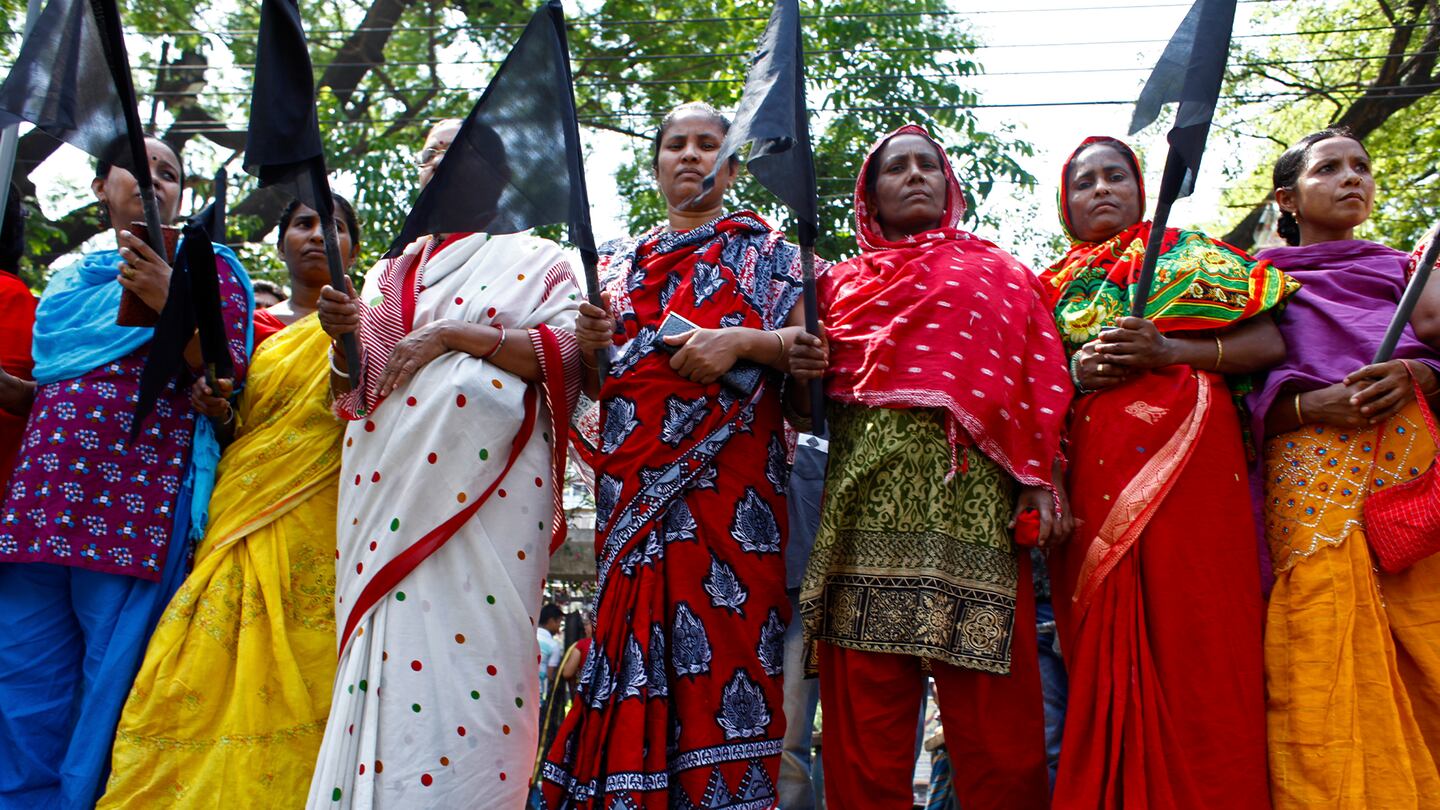
The Business of Fashion
Agenda-setting intelligence, analysis and advice for the global fashion community.

Agenda-setting intelligence, analysis and advice for the global fashion community.

Subscribe to the BoF Podcast here.
Ten years ago this week an eight-storey factory complex in an industrial suburb of Dhaka, Bangladesh collapsed, killing more than 1,100 people and injuring thousands of others.
The Rana Plaza disaster ranks as one of the worst industrial disasters on record. It shook the fashion industry, shining a spotlight on critical safety failings in major brands’ supply chains. In its wake, hundreds of brands signed a groundbreaking safety agreement that helped improve conditions in thousands of factories in Bangladesh, but elsewhere little has changed.
This week on the BoF Podcast, labour rights activist and founder of the Bangladesh Centre for Workers Solidarity Kalpona Akter reflects on where the industry stands a decade later, while BoF’s Imran Amed and chief sustainability correspondent Sarah Kent discuss what still needs to change.
“If you ask me then, ‘what did you achieve in the last 10 years?’ I can say then only the improvement of safety,” says Akter. “The other areas of workers’ rights, like wages, it is still poor.”

Sarah Kent is Chief Sustainability Correspondent at The Business of Fashion. She is based in London and drives BoF's coverage of critical environmental and labour issues.

Imran Amed is the Founder, CEO and Editor-in-Chief of The Business of Fashion. Based in London, he shapes BoF’s overall editorial strategy and is the host of The BoF Podcast.
As they move to protect their intellectual property, big brands are coming into conflict with a growing class of up-and-coming designers working with refashioned designer gear.
The industry needs to ditch its reliance on fossil-fuel-based materials like polyester in order to meet climate targets, according to a new report from Textile Exchange.
Cotton linked to environmental and human rights abuses in Brazil is leaking into the supply chains of major fashion brands, a new investigation has found, prompting Zara-owner Inditex to send a scathing rebuke to the industry’s biggest sustainable cotton certifier.
Over the last few years, the run-up to Earth Day has become a marketing frenzy. But a crackdown on greenwashing may be changing the way brands approach their communications strategies.